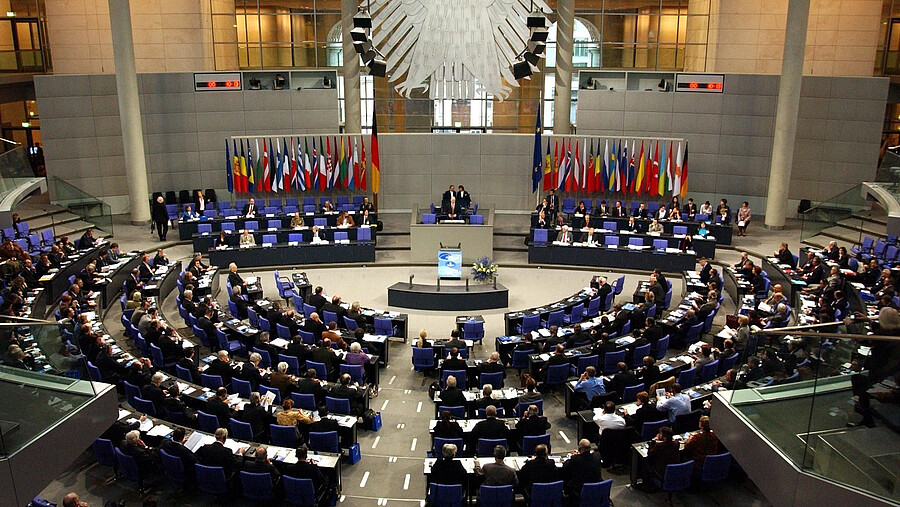Politics and Economics as subject in the Master’s Teacher Training Course for Grammar Schools
(Master of Education)
Profile
German HZB: none
International application: German C1
Find out more
A school internship and a further internship (in a company, a social institution, a sports club, etc.) for at least four weeks must have been completed (compulsory).
Stay abroad possible, but not obligatory.
Short Description
The subject Politics and Economics is offered as one of two subjects within the Master’s Teacher Training Course for Grammar Schools.
The Master’s Teacher Training Course for Grammar Schools follows on from the Interdisciplinary Bachelor’s Degree Programme (or a comparable degree programme). In the subject of Politics and Economics, the student’s specialist knowledge is complemented (e.g. by the module Economic, Labour and Social Policy) or supplemented (e.g. by the module International Relations). The main aim is for students to familiarise themselves with teaching practice in the subject of Politics and Economics, and to undertake teaching methodological reflection.
Further information on the website of the programme Politics and Economics (German language only)
Course Content
- Economic, labour and social policy
- Practical training
- Teaching methodology
If students take Politics and Economics as their first subject,they must complete the modules Economic, Labour and Social Policy, Specialisation in Subject Didactics, the module Subject-Specific Internship and Subject Didactics and the module Fundamentals of Political Economy I. Students of political economy who are taking it as their second subject must also complete the module International Relations and elective modules worth 15 credit points.
Als Erstfach:
| Semester | 1 | 2 | 3 | 4 |
|---|---|---|---|---|
| Pflichtmodule |
| |||
| Bemerkung | Die Masterarbeit (25 LP) kann im Erst- oder Zweitfach oder in den Bildungswissenschaften geschrieben werden und wird hier daher nicht aufgeführt. | |||
Als Zweitfach:
| Semester | 1 | 2 | 3 | 4 |
|---|---|---|---|---|
| Pflichtmodule |
| |||
| Wahlmodule | Drei Wahlpflichtmodule gemäß Prüfungsordnung (15 LP) | |||
| Bemerkung | Die Masterarbeit (25 LP) kann im Erst- oder Zweitfach oder in den Bildungswissenschaften geschrieben werden und wird hier daher nicht aufgeführt. | |||
- A strong interest in working with pupils
- Presentation and teaching skills
- Openness towards issues relating to diversity and inclusion
- Schools
- Political institutions, organisations and facilities
- Political parties, associations and administrative bodies
- Media enterprises
Admission Requirements
An undergraduate degree in a related field of study, such as
For master's degree programmes with unrestricted admission, all applicants who fulfil the admission requirements will be admitted a university place. The exact admission requirements can be found in the admission regulations:
Application Deadlines
First-year students (application from non-EU countries: VPD from uni-assist is required)
- 1 June – 15 July of the year for the winter semester
- 1 December – 15 January of the year for the summer semester, only when there are vacant capacities
Students resuming their studies and transfer students (application in a higher semester)
- 1 June – 15 July of the year for the winter semester
- 1 December – 15 January of the year for the summer semester
Do you have questions about studying? We are happy to help!

30167 Hannover

30167 Hannover









